Search Results
Showing results 121 to 140 of 253

An Apple as Planet Earth
Source Institutions
In this environmental education demonstration (page 6 of the PDF), learners will see a tangible representation of the scarcity of soil resources on earth.
Are you a Supertaster?
Source Institutions
In this activity, learners examine their tongue and taste buds.
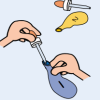
The Nose Knows!
Source Institutions
In this activity on page 9 of the PDF, learners test how flavoring extracts move through the walls of a balloon.

Work Up An Appetite
Source Institutions
In this activity, learners participate in fun movement activities while playing on a giant game board. Use this activity to get learners involved in physical activity.
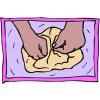
Scented Dough
Source Institutions
In this activity, learners follow a recipe to create play dough scented with fruit-flavored drink mix.
Why is the Sky Blue?
Source Institutions
In this activity, learners create a "mini sky" in a glass of water in a dark room.

Veggies with Vigor
Source Institutions
In this activity, learners try to revive wilted celery. Learners discover that plants wilt when their cells lose water through evaporation. Use this activity to introduce capillary action.
Transparent Gelatin
Source Institutions
In this optics activity, learners explore how they can make gelatin stop light, but not stop them from seeing fruit suspended within.

The Egg Activity
Source Institutions
Learners observe the outside and inside of raw chicken eggs, record descriptions, and hypothesize what will happen when a facilitator drops an egg on the floor.

Bready Bubble Balloon
Source Institutions
Learners discover the bubble power of living cells in this multi-hour experiment with baker's yeast. Learners make a living yeast/water solution in a bottle, and add table sugar to feed the yeast.

Lighting Up Celery Stalks
Source Institutions
In this activity, learners conduct a series of hands-on experiments that demonstrate how the working of plants' veins, known as capillary action, enables water to travel throughout the length of a pla
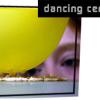
Dancing Cereal
Source Institutions
In this quick activity (on page 2 of the PDF under GPS: Body Electricity Activity), learners will observe how dry breakfast cereal appears to dance when it gets close to a balloon charged with static

Fraction Penguin
Source Institutions
In this craft activity, learners will recognize, name, and compare the fractions 1/2, 1/4, and 1/8 by constructing a penguin out of portions of paper circles.
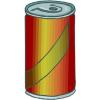
Root Beer Float
Source Institutions
In this quick activity/demonstration about density, learners examine what happens when two cans of root beer--one diet and one regular--are placed in a large container of water.
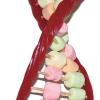
Have Your DNA and Eat It Too
Source Institutions
In this activity, learners build edible models of DNA, while learning basic DNA structure and the rules of base pairing.
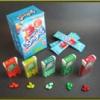
Adherence to HIV Treatment
Source Institutions
In this activity, learners simulate taking HIV antiretroviral drugs by using Tic Tac mints and Kool-Aid packets.

Mold Growth
Source Institutions
In this activity learners observe mold growth on different types of bread by measuring and recording the growth rate.

Shape Up!
Source Institutions
In this activity (25th on the page) about learning and memory, learners explore a training method that animal trainers employ called "shaping." Working in pairs, learners will attempt to "shape" each

Natural Selection of Antibiotic Resistant Bacteria
Source Institutions
In this activity (p.3-4 of PDF), learners learn about disease transmission and antibiotic resistance.
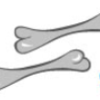
Air-filled (Pneumatic) Bone Experiments
Source Institutions
Just like birds, some dinosaurs had air-filled (pneumatic) bones, which made the dinosaurs' skeletons lighter.
